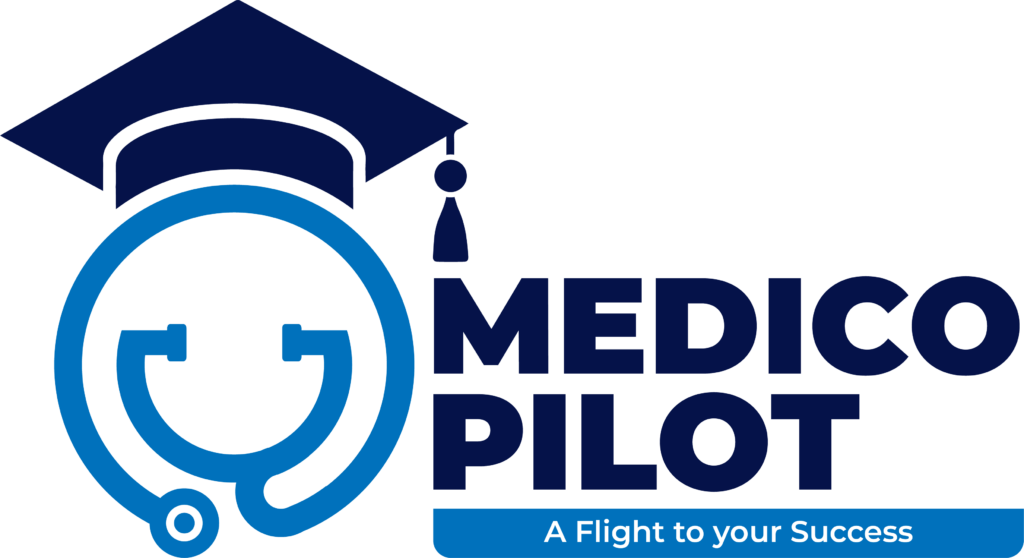
The journey beyond Neet: How Medical Students Transform into Doctors
The path from medical student to doctor is a protracted and difficult one that is packed with demanding academic, clinical, and personal growth experiences. The process normally consists of multiple important phases, each with specific obstacles and objectives. Here is a summary of the process by which medical students develop into doctors after passing the National Eligibility cum admission Test (NEET), which serves as the admission exam for medical colleges in India. Here is a brief understanding of how the journey takes place:
1.Pre-Medical Education (10+2): The journey begins in high school, where students interested in pursuing a medical career focus on subjects like biology, chemistry, and physics. Excelling in these subjects is crucial to secure admission to a reputable medical college. At this stage, the basics are taught which lays the foundation for gaining a deep understanding about the subjects which will be useful while attempting the NEET exam.
2.NEET Examination: After completing high school, aspiring medical students in India must appear for the National Eligibility cum admission Test (NEET). NEET is a highly competitive entrance exam that tests students on their knowledge of biology, chemistry, and physics. The scores from this exam are used to determine eligibility for NEET counseling/admissions to medical colleges.
3.Medical College Admission: Successful NEET candidates can go through the counseling process where they apply for admission to medical colleges based on their NEET exam scores and other criteria. The NEET counseling/admission process can be highly competitive, and students may need to consider various factors such as location, reputation, and facilities when choosing a college.
4.Medical School (MBBS): After NEET counseling and admission, the medical journey starts. The MBBS (Bachelor of Medicine, Bachelor of Surgery) program typically spans five and a half years. During this time, students undergo a rigorous curriculum that includes both theoretical and practical aspects of medicine. They study subjects like anatomy, physiology, pharmacology, pathology, and clinical medicine.
5.Clinical Rotations: After completing the initial years of coursework, students enter the clinical phase of their education. This involves rotations through different medical specialties, such as internal medicine, surgery, pediatrics, obstetrics and gynecology, and more. These rotations provide hands-on experience and exposure to different medical disciplines.
6.Internship: Following graduation with an MBBS degree, medical students must complete a one-year internship at a hospital. During this time, they work under the supervision of experienced doctors, gaining practical experience in patient care and treatment.
7.Postgraduate Studies (Optional): Many doctors choose to pursue postgraduate studies to specialize in a specific medical field. This involves yet another NEET exam that is conducted at a post graduation level and requires several additional years of training, leading to degrees such as MD (Doctor of Medicine) or MS (Master of Surgery).Once fully trained and certified, doctors can practice independently or as part of a medical team.They diagnose and treat patients, make medical decisions, and, in some cases, perform surgeries.
8.Licensing Examination: To practice medicine legally, doctors must pass a licensing examination specific to their country or state. In India, the Medical Council of India (MCI) conducts the Foreign Medical Graduates Examination (FMGE) for graduates of foreign medical schools, while the National Board of Examinations (NBE) conducts the NEET PG (National Eligibility cum Entrance Test for Postgraduate courses) for postgraduate medical students.
9.Residency and Practice: Once licensed, doctors can start their careers as medical practitioners. Many choose to pursue further training through a residency program, while others enter private practice or work in hospitals and healthcare facilities.
10.Continuous Medical Education: Medicine is a constantly evolving field, so doctors must stay up-to-date with the latest medical research and technologies throughout their careers. As it is a rapidly evolving field, doctors are expected to engage in continuous medical education throughout their careers to stay updated with the latest developments and best practices in healthcare.
The journey for a medical student starts with NEET and progresses to a career as a doctor and the path to achieve this goal is very demanding, requiring dedication, resilience, and a passion for patient care. It’s a transformative process that equips individuals with the knowledge and skills needed to diagnose, treat, and care for patients, making a significant impact on their lives and the healthcare system as a whole.
